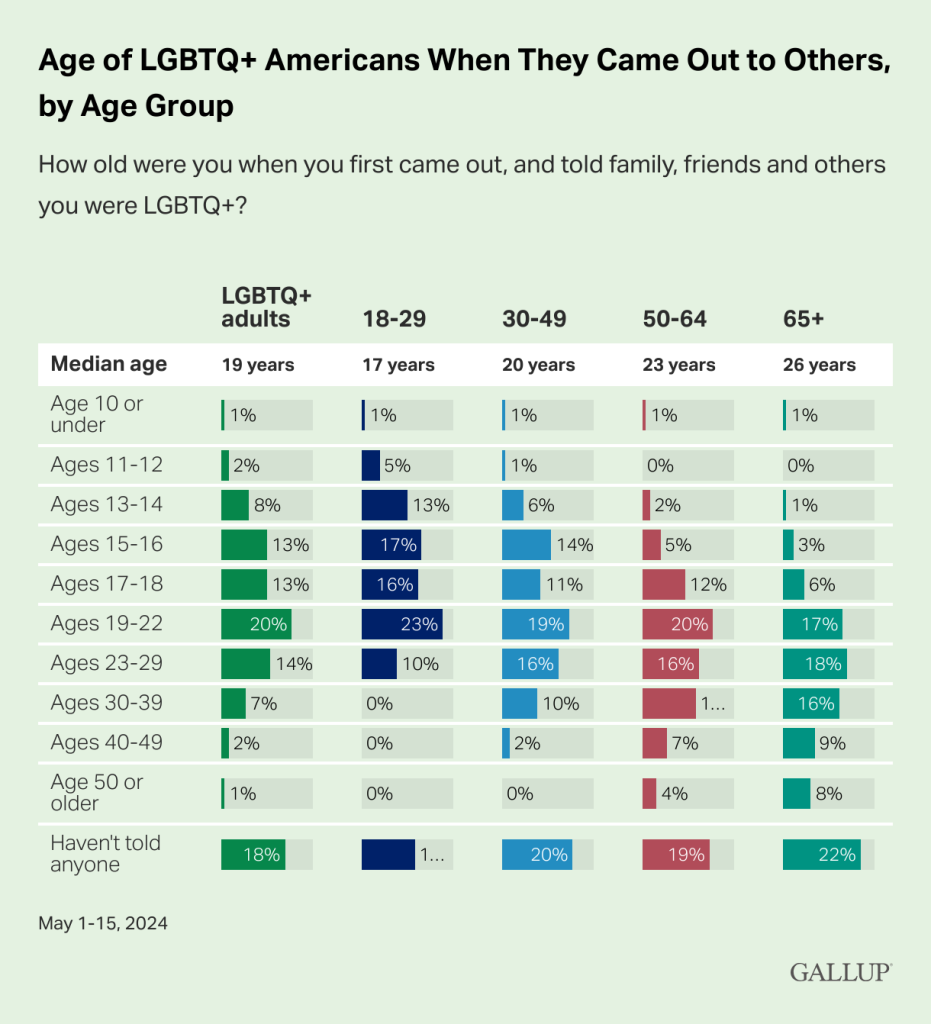LGBTQ+ Americans are coming out younger than ever, survey shows
LGBTQ+ Americans are coming out younger than ever before, new research has revealed.
A probability-based Gallup Panel survey of gay, lesbian, bisexual and trans adults, along with those who identify as something other than non-heterosexual or cisgender, showed that among the youngest LGBTQ+ adults, aged 18 to 29, the median age they came out was 17.
Those between the ages of 30 and 49, and from 50 to 64, came out in their early twenties. Adults aged 65 and above came out at the median age of 26.
Of the 71 per cent of adults who reported having come out to others before they turned 30, 57 per cent did so by the age of 22.
The findings of the survey, which was conducted online for a fortnight from 1 May, show that young adults kept their identity secret – having realised they were queer – for three years, while senior citizens waited the longest, 10 years, to come out.

Most LGBTQ+ adults said they knew they were LGBTQ+ when they were young, including 48 per cent realising by the age of 14, and 72 per cent by the age of 18.
Adults aged 65 and older were most likely to have come out later in their twenties, while, in contrast, the three youngest age groups were most likely to have done so between the ages of 19 and 22.
Just five per cent of gay or lesbian Americans reported not having come out to anyone, while 23 per cent of bisexual adults remain “in the closet”. LGBTQ+ women were found to be twice as likely as men to report having come out by the age of 14.
The survey also revealed that one in five LGBTQ+ adults believe that society’s treatment of queer people has “gotten a lot” or “gotten a little” worse.
On average, just one in every 20 LGBTQ+ adults said they have received poor treatment or harassment “frequently” because of their sexual orientation in the past year but that figure jumps to 19 per cent for those harassed or poorly treated “occasionally”.
At the end of last year, a study by Business Insider and YouGov found that Gen Z are now increasingly rejecting binary labels such as “gay” and “lesbian” in favour of more the more fluid “queer”.